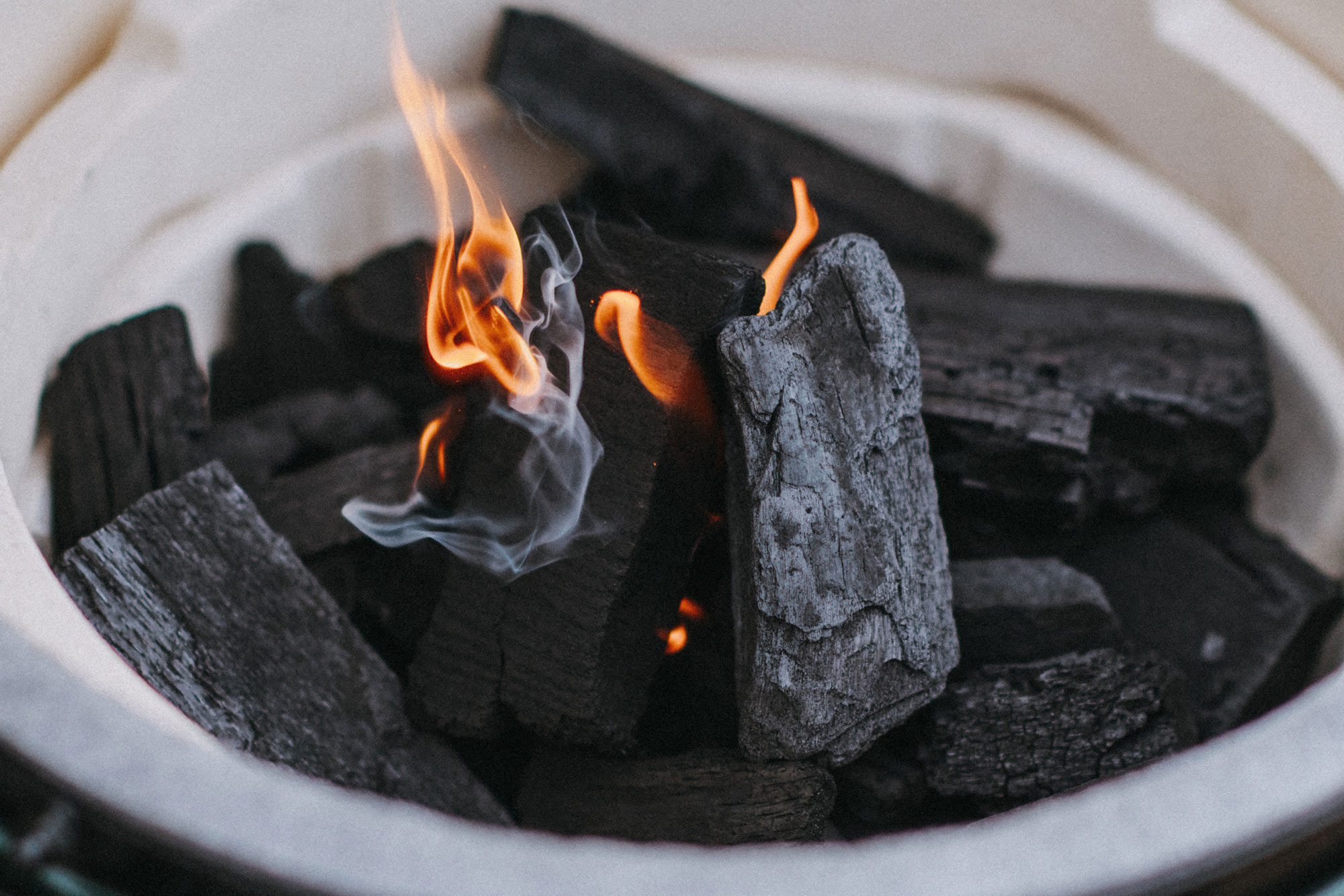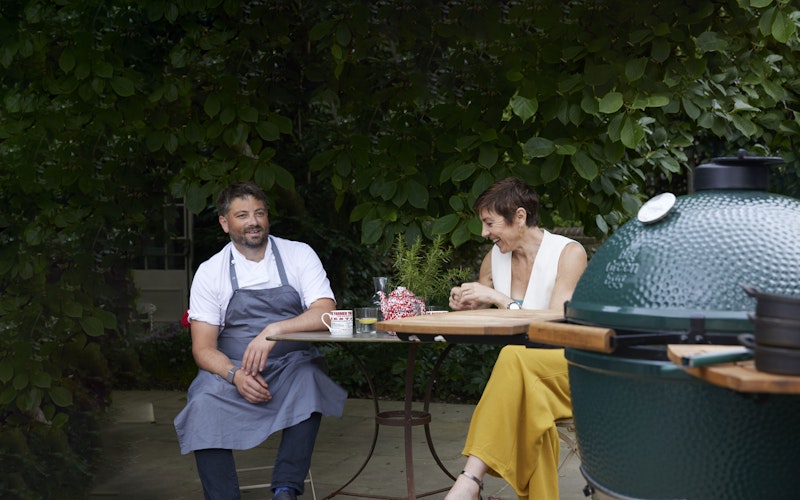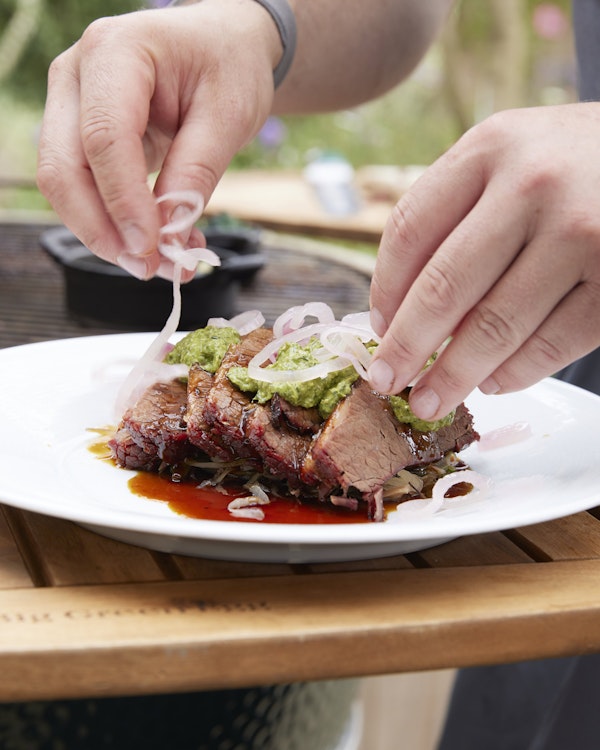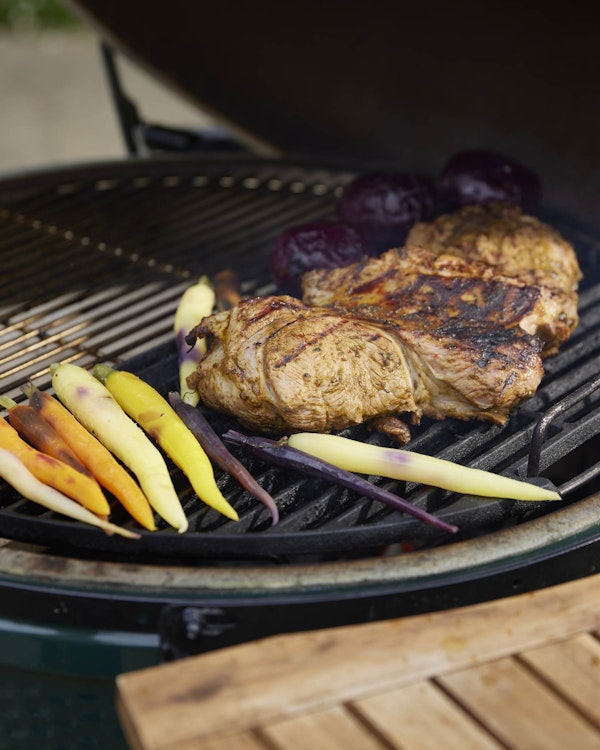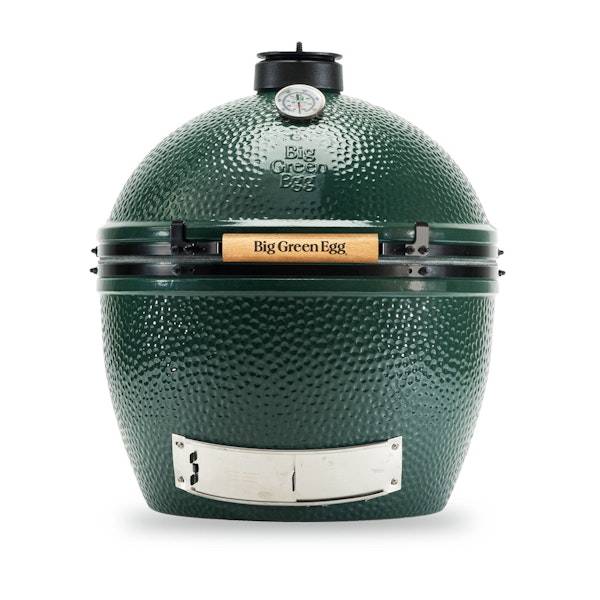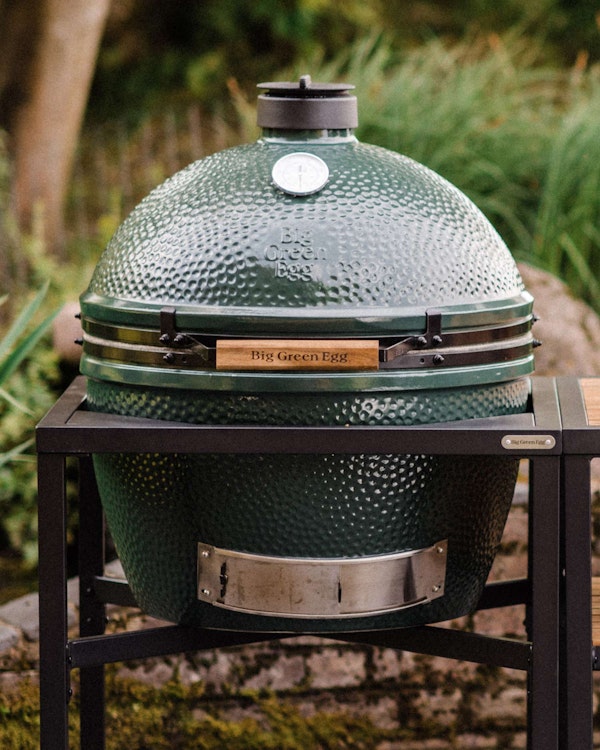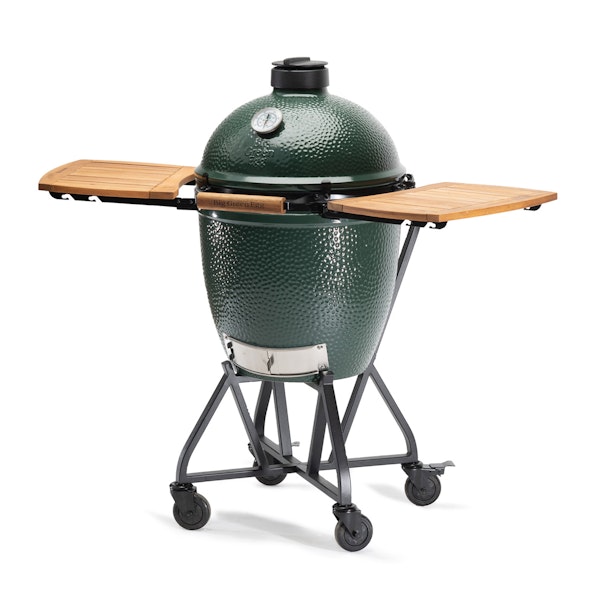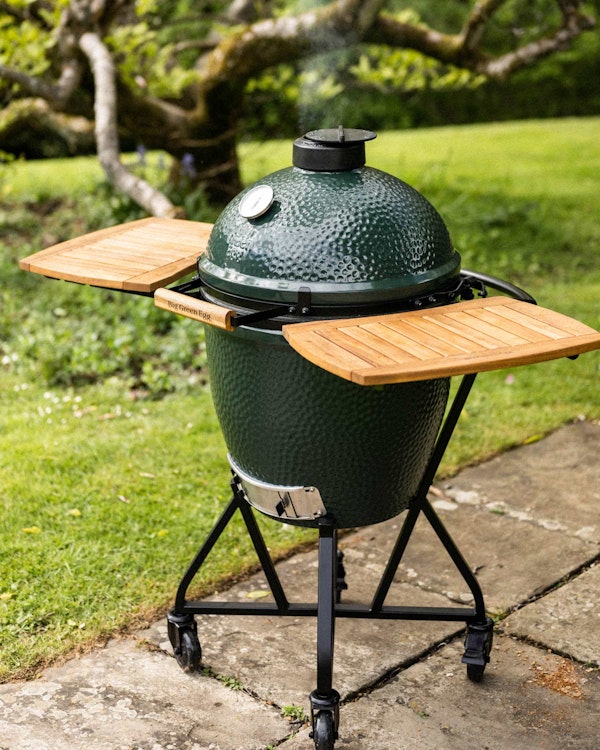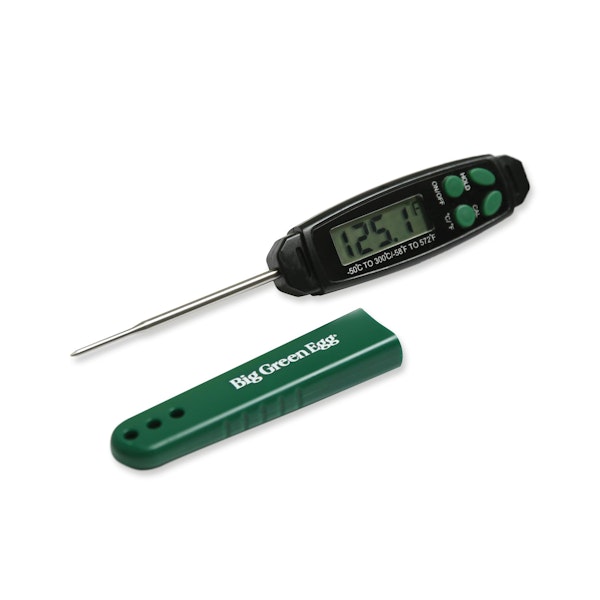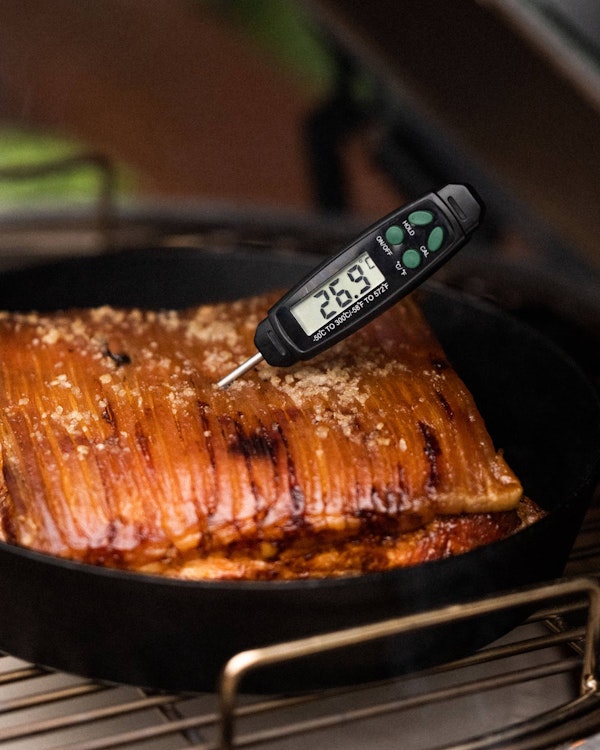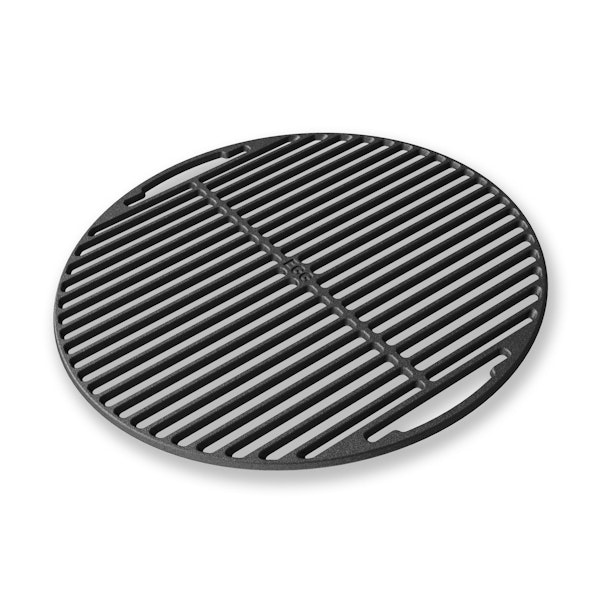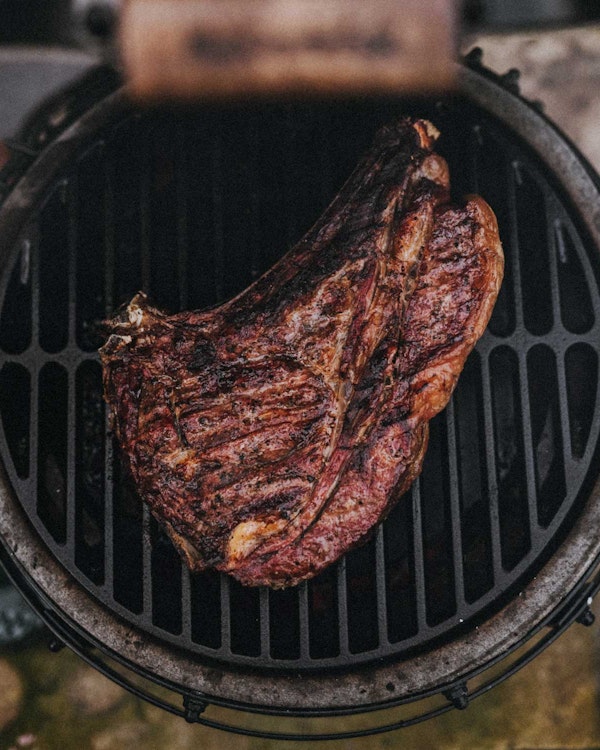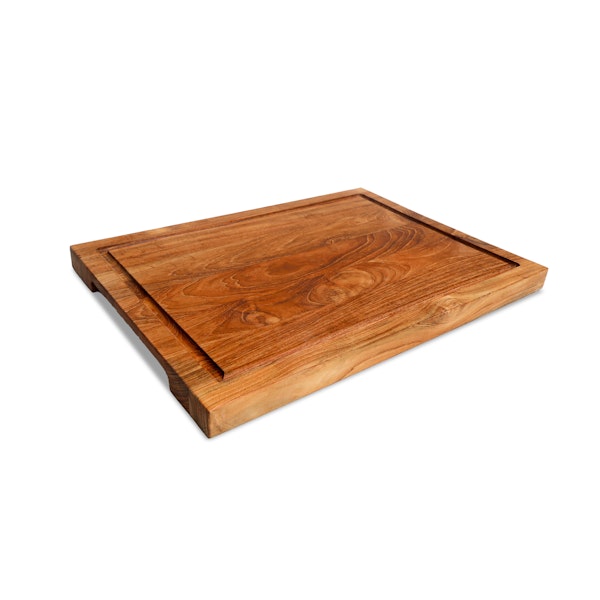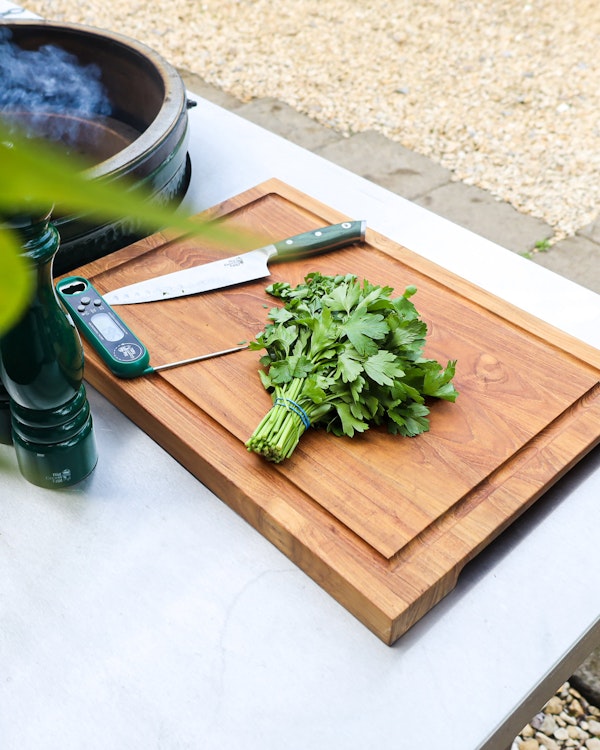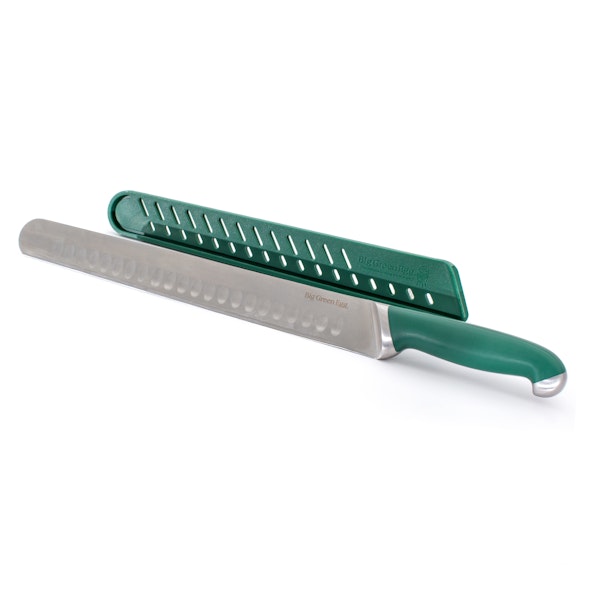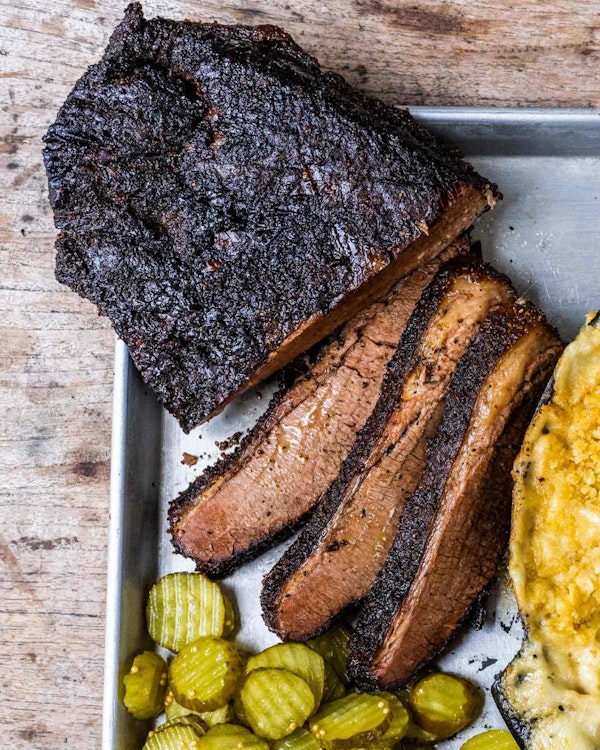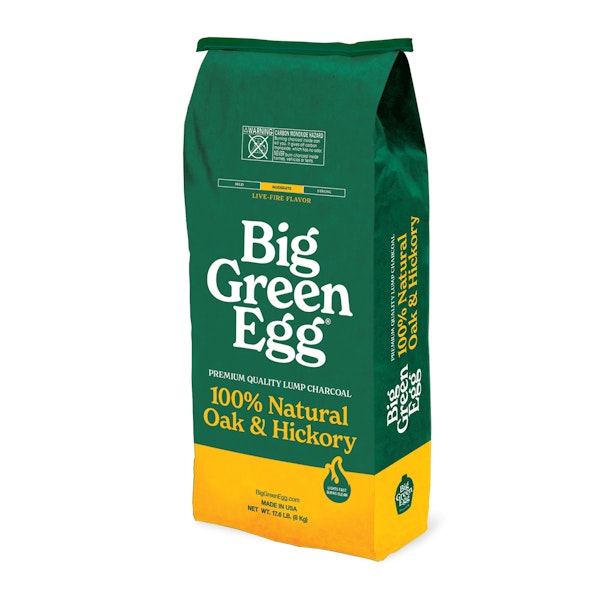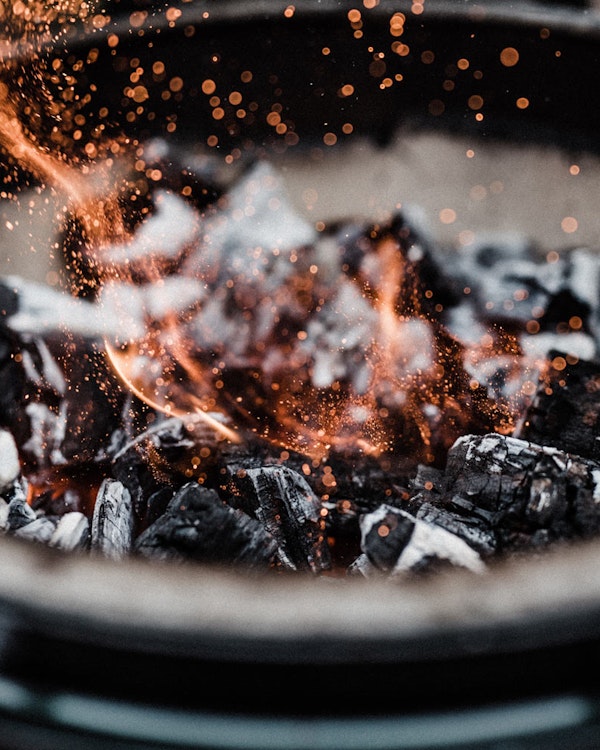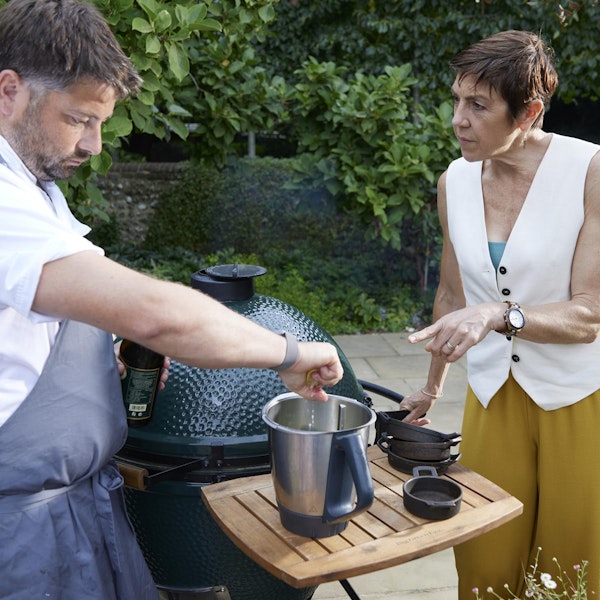As executive chef of the Goodwood Estate, what does your remit cover?
It’s very broad. We’ve got a 92-bedroom hotel, a members club at the top of the hill and the house itself, which has a large function suite. Then we’ve got the motor circuit, which has regular track days, two cafes, our own burger van. On top of that, we’ve got the horse-racing circuit. It’s open 18 days a year, and then you’ve got the event season as well, which is just vast. In total, we have about 45 full-time chefs between all those venues. So, there’s plenty going on!
That’s lots of food, and lots of different types of food. Is there a unifying philosophy behind it?
Our entire identity is centred on one very simple thing: our farm. We use all our own milk. We’ve got three of our own cheeses, all our own pork, beef and lamb. Everything we do is built around utilising that – especially the Farmer, Butcher, Chef restaurant, which is all about the secondary cuts, the ones that we don’t serve in some of the other restaurants.
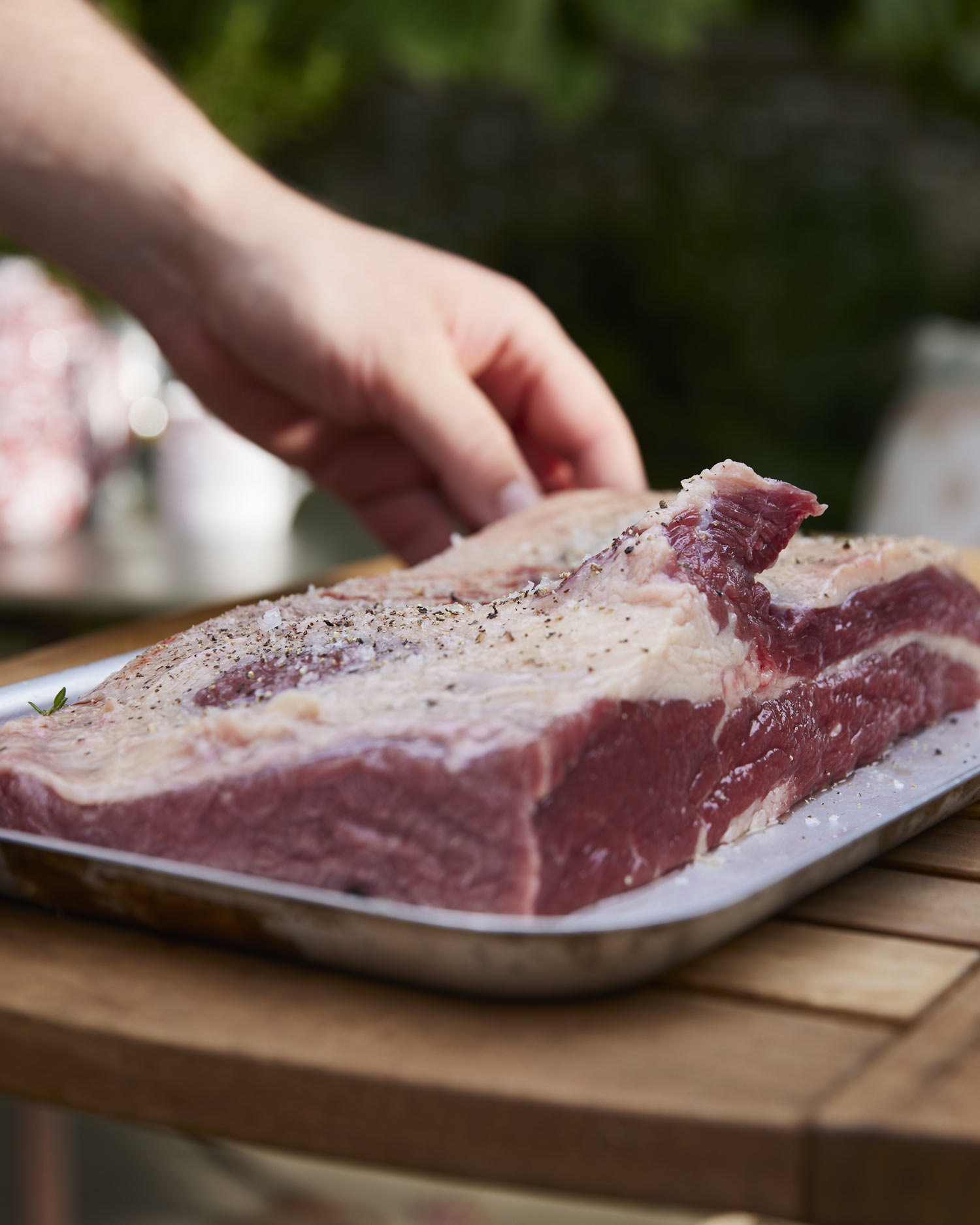
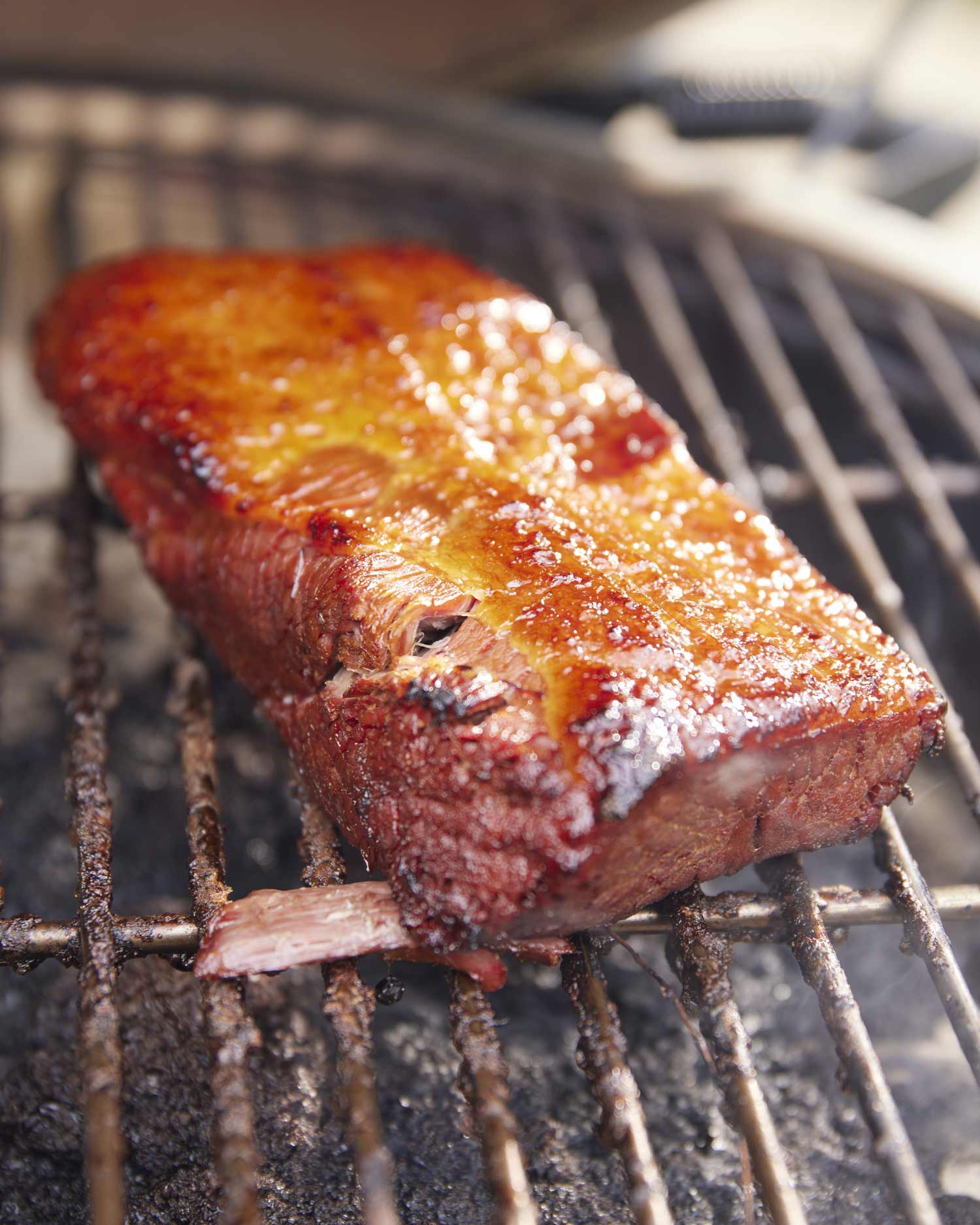
Do you have a very close relationship with the farmers?
Yes, all of us do. Every one of those venues is in constant contact with the farm and the butchery. It’s the 21st century, so we’ve got WhatsApp groups. It’s a really nice experience for everyone. For my team to be involved the whole way through the process of producing the food is such an amazing opportunity. We have an apprenticeship scheme for young chefs, and they each spend four to eight weeks at the butchery and the farm, learning how to rear the animals, how to butcher, how the dairy operates, how to make the cheeses. When they join our businesses full time, they’ve got a real good idea of why we use organic produce from our own farm, and why it’s so important.
Why is it so important?
It’s about quality and it’s about ethics. Ethically, it’s knowing that those animals have had a good life, they haven’t been pumped full of chemicals, they’ve grown naturally, over the right period of time, and they’re the right breeds for the land they live on. The cattle and sheep are original Sussex breeds, so they’re perfect for grazing our land, eating our fauna, and that just equates to better flavour and better texture. It’s superior meat for your health as well – there’s no junk in it. It’s how farming was 150 years ago.
So, food miles really aren’t an issue!
We like to say that if you come here, you’ve travelled further than your food. It’s a bit of a tagline, but it’s completely true. On your way in, you’re almost guaranteed to have driven past an area of our farm. We graze the sheep just outside the front of the main house at some points. We even do the lambing out in the fields. We used to get spring lamb that was ready by Easter, but that meant they had to be born in barns. Our lambs are now born slightly later – late March, early April – and we allow them to mature for longer in the field. You end up with something closer to hogget: a better depth of flavour, a larger piece of meat, with more body to it.
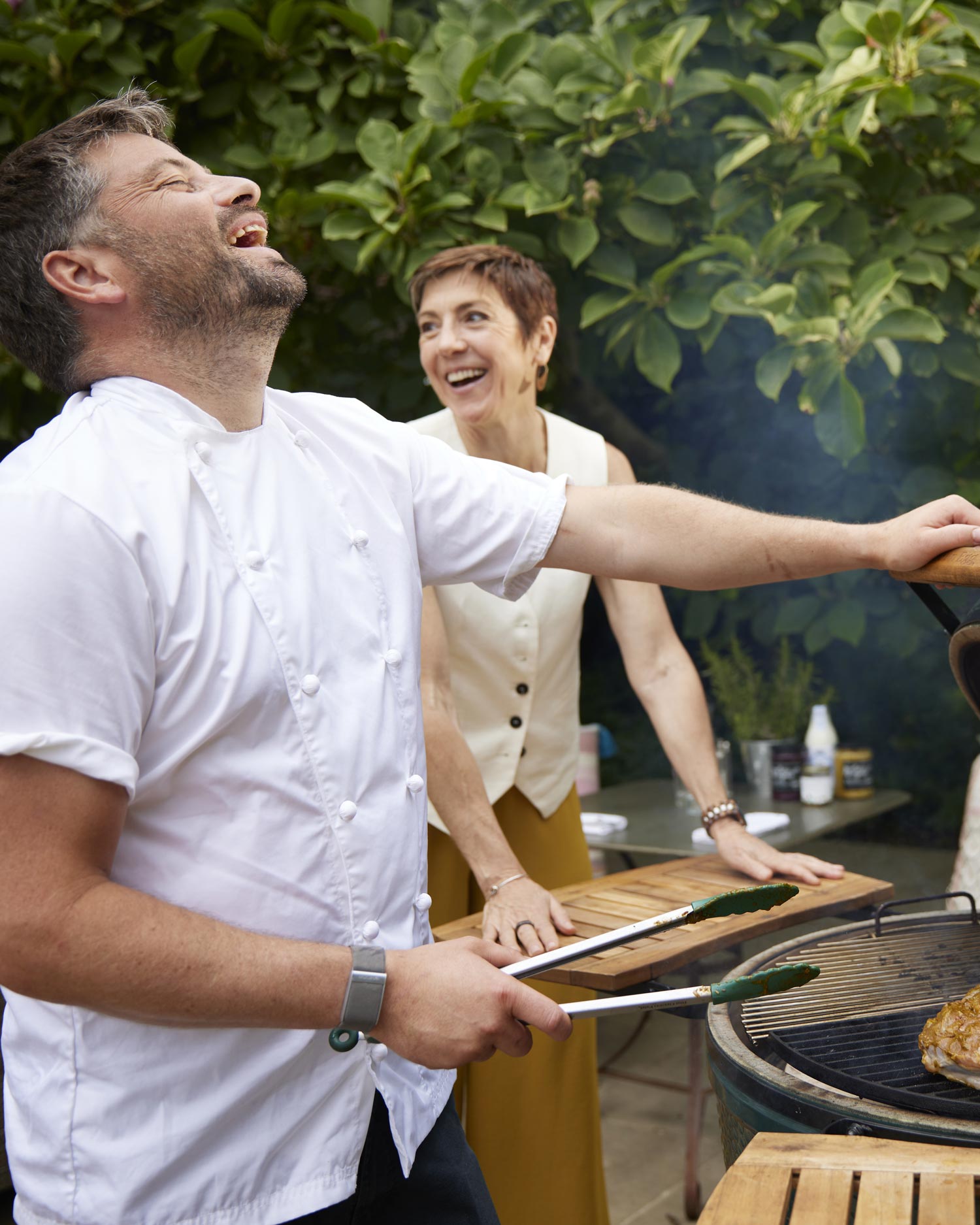
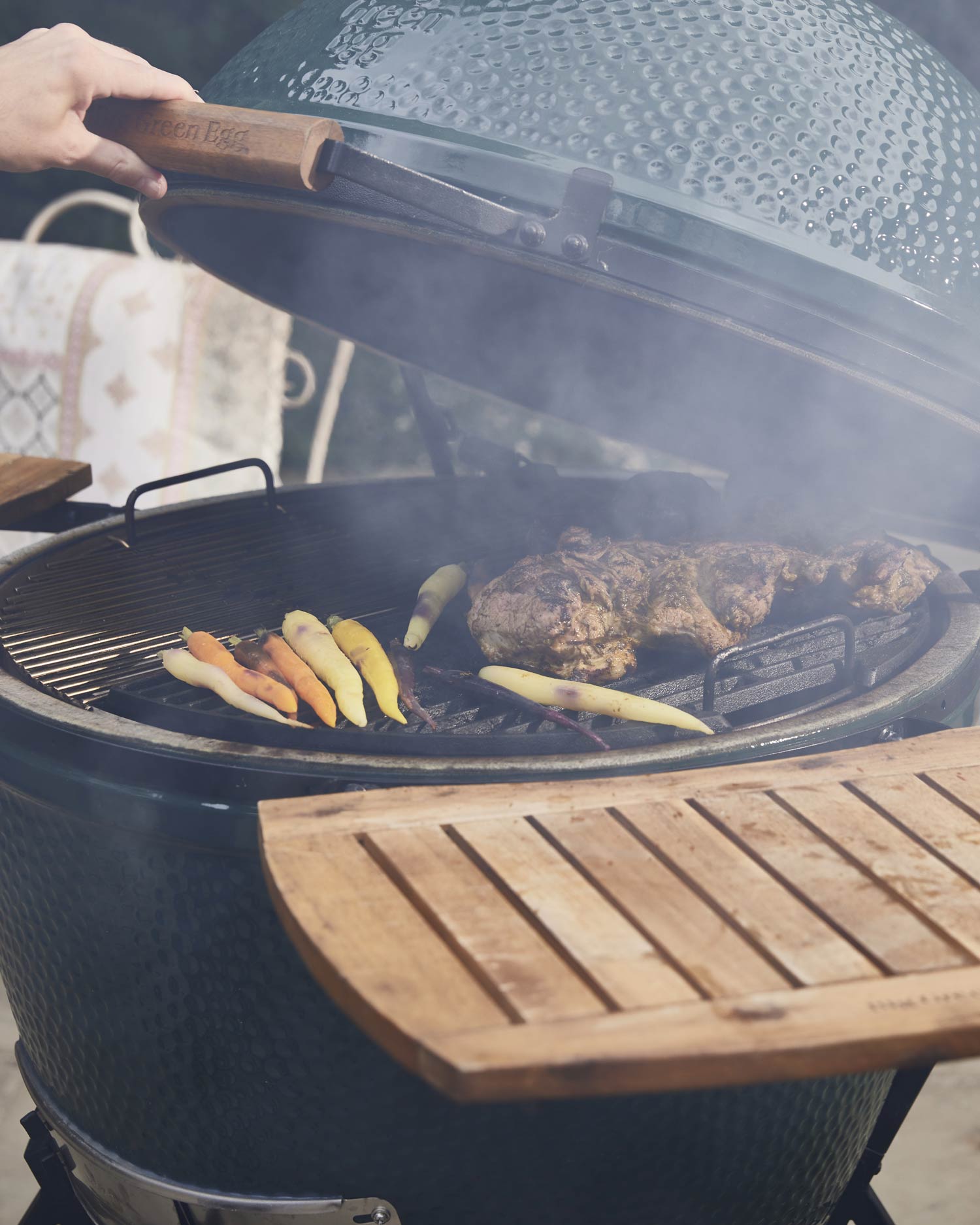
How do you find working with Stephanie Moore, catering for guests at the estate’s gut-health wellness retreats?
It’s a really interesting project. It’s about removing sugars and carbohydrates, improving protein use, having higher levels of vegetables, and working with fermented foods. For a chef like me, who grew up in old-school hotels where we made beautiful breads and desserts and used potatoes with every main course, it’s been a bit of a curveball, but it’s actually really good fun. It makes you think a lot more. I can’t add any sweeteners, but if I’m smart, I can add a little splash of cider vinegar and I can take some sweetness from the carrots, and it’ll still taste really good. If you do it properly, you still feel sustained, you still feel full, you don’t feel like you’re missing anything, and the food tastes absolutely delicious.
What use do you make of the estate’s Big Green Eggs?
We’ve got Big Green Eggs in two of our venues full time, and then we can move them elsewhere if we want to. We have them for the terrace area at the Farmer, Butcher, Chef and we’ve had them in the kitchen a few times as well. We love cooking over fire. We love the flavour, the texture, the depth of flavour. With the Big Green Eggs, just being able to control the temperature that comes out of them is so beneficial compared with other barbecue techniques. I mentioned that when we rear our animals, it’s like farming 150 years ago; well, with cooking over charcoal, cooking over wood, you’re going back even further into history. You’re cooking how our forefathers did. It just seems so right. The more we do it, the more I fall in love with it.
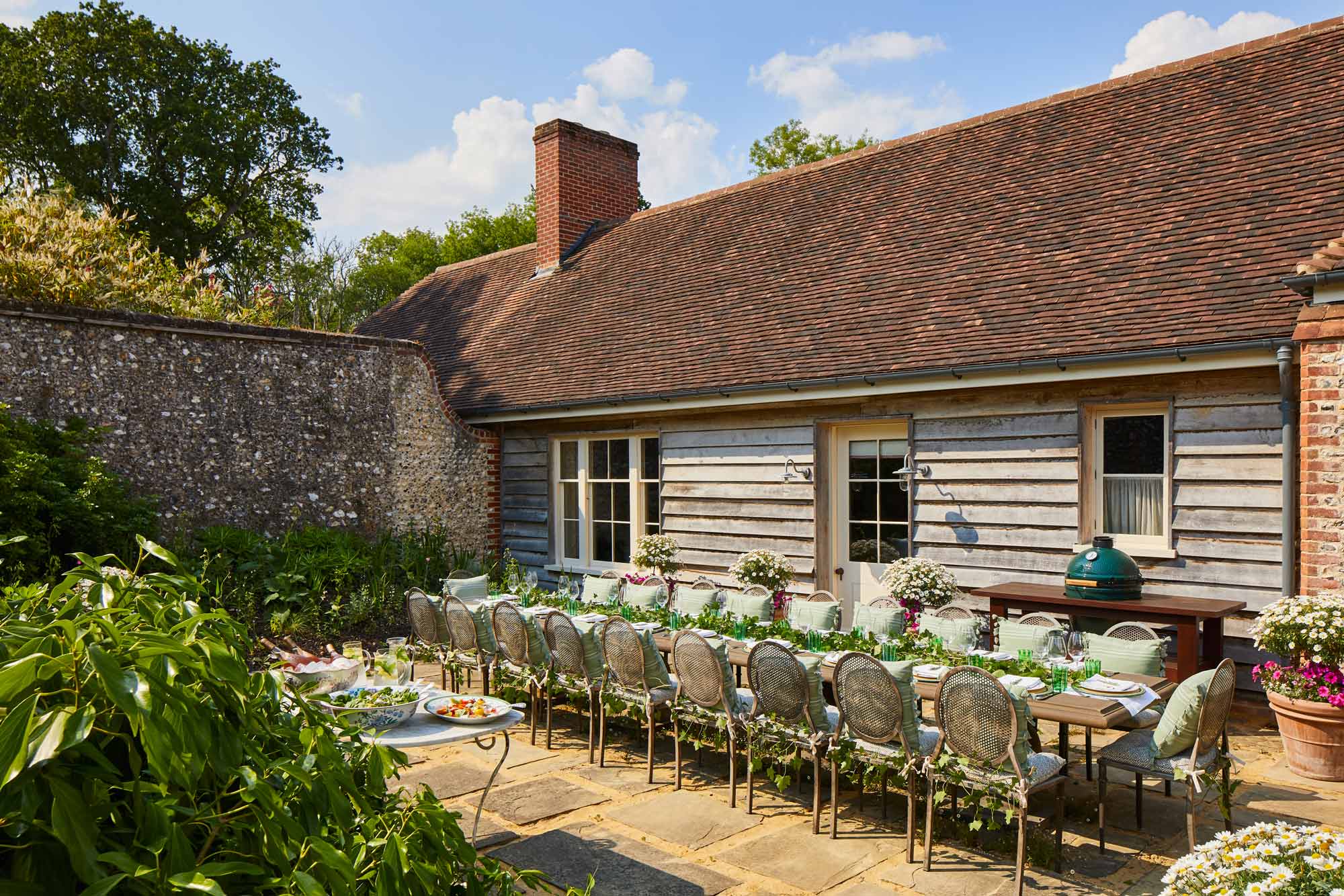
How important to you is the quality of the charcoal you cook with?
It’s so important. We’ve almost got too many luxuries on the estate, and one is that we make our own charcoal. We’ve got our own forestry department. We chop down our own wood, which means we can get our own woodchips of any flavour we want. We can just speak to the forestry man and say: “We want apple wood.” And he’ll go: “Okay, I’ve got some of that, there you go.” We’re constantly tinkering in the EGG, playing with flavour and temperature, using different types of wood.
